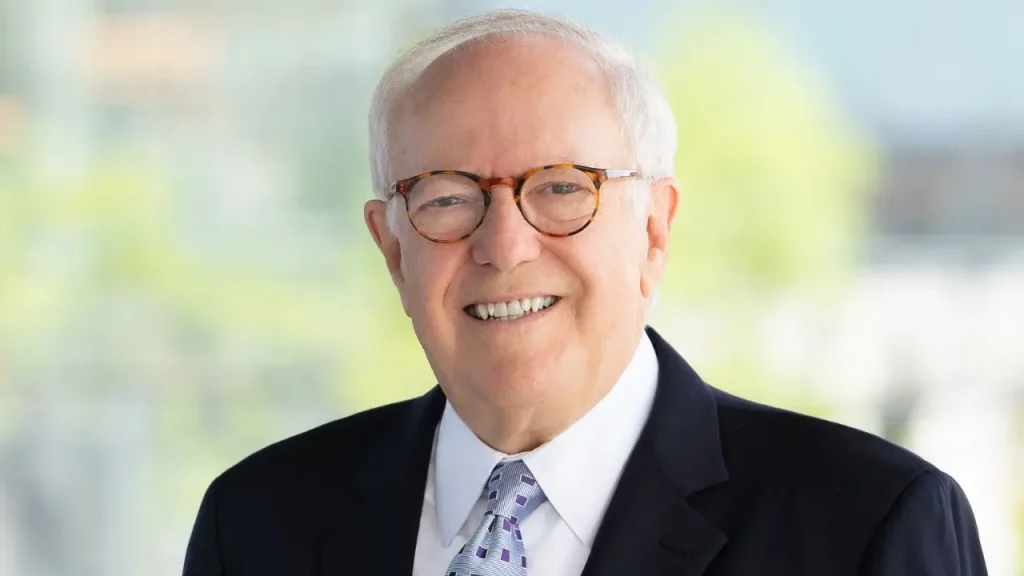Robert Barnett: The Washington Power Broker Who United Politics and Publishing
Robert Barnett, a legendary Washington attorney who transformed the landscape of political publishing, passed away Thursday night at the age of 79 at Sibley Memorial Hospital. As the literary representative for numerous presidents, political leaders, and media personalities, Barnett created a unique niche in the capital’s power structure. His client list read like a who’s who of American politics—Barack and Michelle Obama, Bill and Hillary Clinton, Edward Kennedy, Dick Cheney, and Mitch McConnell—showcasing his remarkable ability to work across the political divide at a time when bipartisanship was still valued. With his distinctive appearance—tortoiseshell glasses, antique cuff links, and a raspy voice—Barnett represented an era of Washington that has largely faded, where relationships transcended party lines and discretion was paramount.
Though a lifelong Democrat who worked on Jimmy Carter’s 1976 campaign and helped numerous Democratic candidates prepare for debates, Barnett never let politics interfere with his professional relationships. He famously joked that gathering all his clients in one room would trigger “World War III,” yet he navigated these potentially explosive dynamics with diplomatic skill. Unlike traditional literary agents who work on commission, Barnett operated as an attorney billing by the hour—a model that attracted high-profile clients while making him less accessible to everyday writers. His approach revolutionized how political figures monetized their experiences and expertise through publishing, culminating in landmark deals like Bill Clinton’s 2004 memoir “My Life,” which cemented Barnett’s reputation as the premier dealmaker for political heavyweights.
The Clintons released a heartfelt statement describing Barnett as “a brilliant lawyer” who served as “a dear friend, a trusted advisor, and a wise, faithful, and steadfast guide to the publishing and entertainment worlds.” Their relationship extended beyond business—Barnett had been part of Clinton’s 1992 presidential campaign before negotiating deals for both Bill and Hillary’s numerous books and media projects. The statement noted Barnett’s editorial acumen: “Bob had an insightful eye for editorial detail and a keen ear for language and nuance, but more importantly, he was utterly devoted to his clients, always unfailingly generous with his time and his considerable talents.” This devotion to his clients’ interests and understanding of their voices made him an invaluable partner in translating political careers into literary achievements.
Fox News Media CEO Suzanne Scott similarly praised Barnett’s character and influence, calling him “legendary as an industry titan across media, politics and law, and at his core, a wonderful man.” Her statement highlighted the 30-year relationship they shared, emphasizing his “pristine integrity, wise counsel and knowledge of our business.” This tribute from a major conservative media executive alongside the praise from prominent Democrats demonstrates Barnett’s unique ability to earn trust across ideological boundaries—a rare quality in today’s polarized environment. Scott added that Barnett “will be deeply missed by the Fox News Media family and the many anchors and correspondents he represented,” underscoring his influence throughout the media landscape.
Born in Illinois, Barnett built a life both professionally and personally that embodied Washington at its best. In 1972, he married Rita Braver, a fellow University of Wisconsin graduate who would become a respected CBS correspondent. Together they had a daughter, Meredith, creating a family deeply embedded in the capital’s journalism and legal circles. His professional home was the prestigious law firm Williams & Connolly, where partner Michael F. O’Connor confirmed Barnett’s passing from an “undisclosed illness.” The privacy surrounding his final days reflects the discretion that characterized his professional dealings, where confidentiality was sacred even as he brokered some of publishing’s most public and lucrative contracts.
Barnett’s legacy extends beyond the deals he negotiated and the clients he represented. He personified a Washington that valued relationships, competence, and mutual respect across party lines. In an era of increasing political tribalism, his career stands as a reminder that at its best, the nation’s capital can bring together diverse perspectives and talents in service of both individual success and broader civic purposes. Through his understated but formidable influence, Barnett helped shape how Americans learn about their leaders through memoirs and reflections that might never have reached the public without his skilled intermediation. As both political and media landscapes continue to fragment, his death marks the passing not just of an individual but of an approach to public life that balanced partisanship with pragmatism and personal connection.











